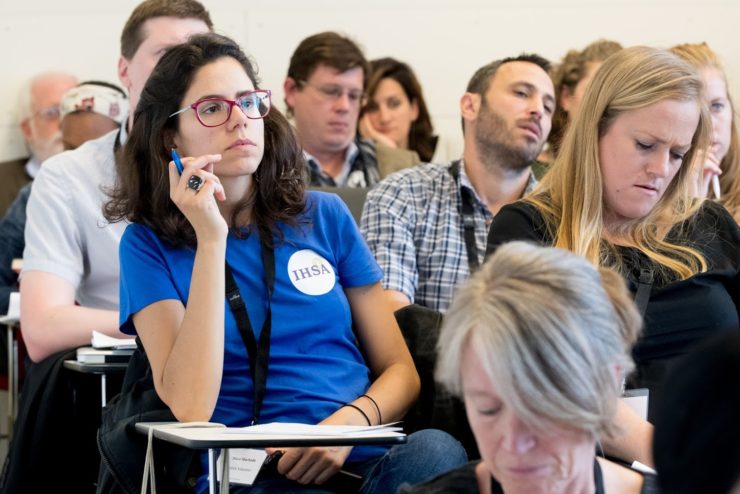Local actors and affected populations at the heart of their own recovery: how can humanitarian standards contribute?

The World Conference of Humanitarian Studies took place on 27-29 August 2018 in The Hague. Photo credits: IHSA
Can humanitarian standards contribute to empowering local actors and affected populations during humanitarian response and recovery phases? Aninia Nadig, Sphere Advocacy and Policy Manager, discussed this question during a panel discussion at the World Conference on Humanitarian studies, organised by the International Humanitarian Studies Association and held in The Hague on 27-29 August 2018.
Sphere’s Aninia Nadig, presenting on behalf of the Humanitarian Standards Partnership, proposed a reflexion on the role of humanitarian standards in shifting agency towards local actors during crisis response as a way to increase participation and accountability in disaster management.
In the context of humanitarian emergency, the risk of uneven agency-dynamics between humanitarians and crisis affected people is prevalent. “Humanitarian standards are often principally used in support of efficiency and effectiveness, despite undeniable efforts to embrace a people-centered approach”, Nadig argued. “But accountability and participation are difficult to attain without some degree of shifting agency towards local actors including affected people themselves. Humanitarian standards can be used to support that shift.”
Framing disaster preparedness, response or recovery in a rights-based and participatory approach, humanitarian standards have evolved to offer an increasing range of options to support national and local uptake. “Standards can be used in support of local and national rights advocacy groups, for example, to increase affected populations’ awareness of their rights”, Nadig concluded. “In any case, political will is key to making this shift towards increased local agency a reality.”
